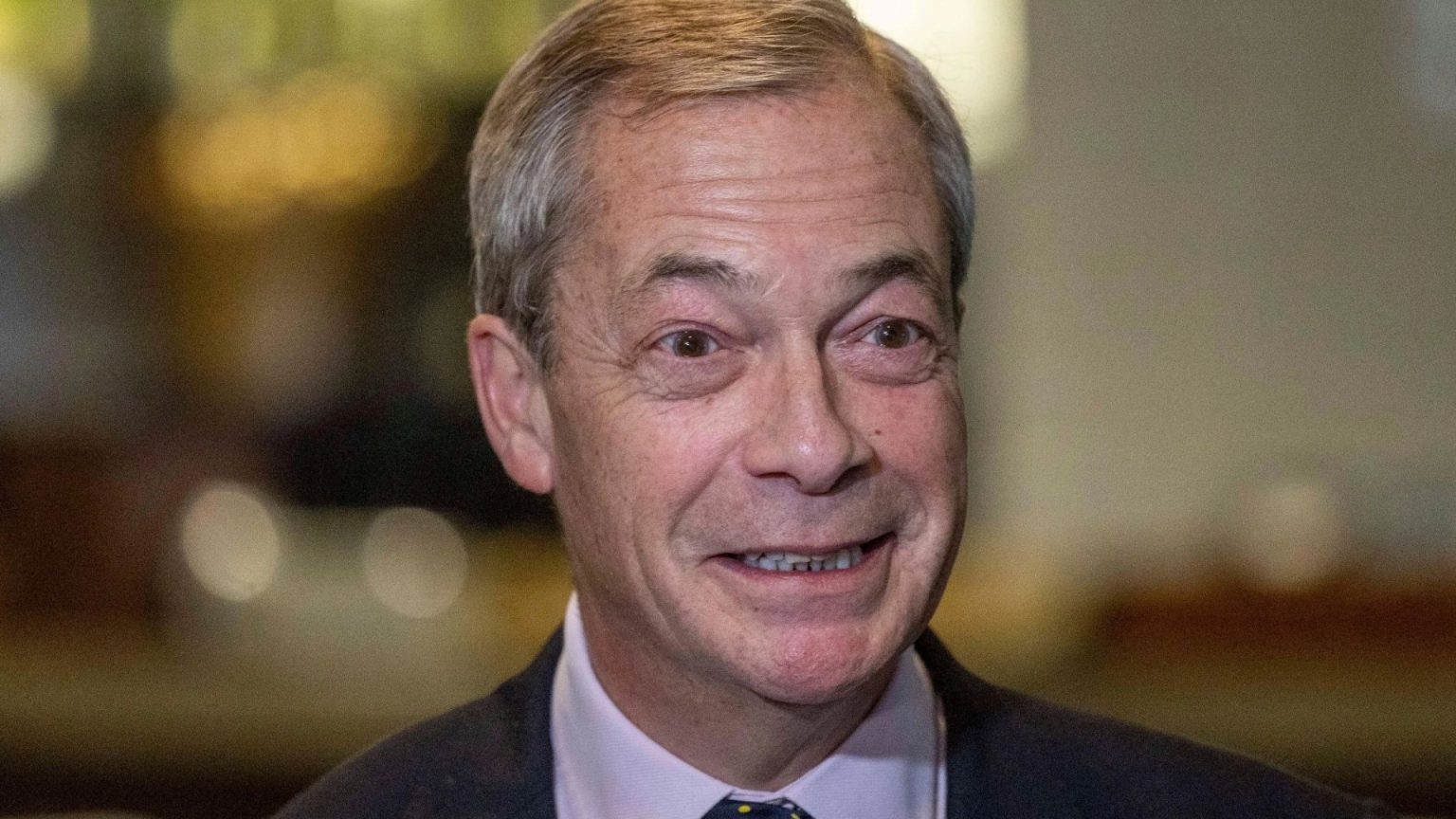The political landscape in the UK is heating up, with Kemi Badenoch, a prominent Conservative Party leader, and Nigel Farage, leader of the Reform UK party, engaging in a public exchange of barbs. Badenoch dismissed Reform UK as a mere “protest party,” a characterization that Farage countered by holding a rally of 400 supporters in Badenoch’s own constituency, North West Essex, and boldly declaring his intention to challenge her seat in the upcoming election. This confrontation comes at a crucial juncture, with recent polls placing Reform UK in second place, just two points behind the leading Labour Party and one point ahead of the Conservatives, signifying a potential shift in the political balance of power.
Badenoch’s dismissive remarks about Reform UK came during a visit to a farm in Cheshire, where she emphasized the importance of agricultural policy over what she perceived as Farage’s self-serving rally. She framed her focus on the “family farm tax” as a matter of greater significance than engaging with Farage’s political maneuvering. This deliberate contrast underscores the differing priorities of the two parties and their leaders, with Badenoch portraying herself as focused on practical policy while implicitly casting Farage as an opportunistic populist playing to public discontent.
This latest clash follows a recent disagreement between Badenoch and Farage over the potential repatriation of Shamima Begum, a British woman who left the UK to join ISIS. Badenoch took a hardline stance, asserting that a Conservative government would never “take back terrorists” and emphasizing that citizenship entails a commitment to the country and its well-being, not a license for criminal activities abroad. This firm position contrasts with Farage’s more nuanced perspective. While initially expressing reluctance to allow Begum’s return, he later softened his stance, suggesting she might be a “lesser part of the equation” and not an outright ISIS killer. This divergence of opinion further highlights the ideological differences between the two leaders and their respective parties.
Farage’s decision to hold a rally in Badenoch’s constituency on the fifth anniversary of Brexit is a strategic move designed to capitalize on the ongoing political turbulence and appeal to voters disillusioned with the Conservative government. His warning to the Tories underscores his ambition to disrupt the established political order and position Reform UK as a viable alternative. The polling data, showing Reform UK’s rising popularity, adds weight to Farage’s challenge and suggests that his message resonates with a significant segment of the electorate.
Badenoch’s dismissal of Reform UK as a “protest party” reflects the traditional party’s attempt to downplay the threat posed by insurgent movements. However, the rising poll numbers for Reform UK suggest that this strategy may be ineffective. The public’s growing dissatisfaction with the established political parties, coupled with Farage’s charismatic leadership and populist appeal, creates a potent combination that could significantly impact the outcome of the next election.
The ongoing exchange between Badenoch and Farage highlights the broader political dynamics at play in the UK. The rise of Reform UK reflects a growing public appetite for change and a willingness to consider alternatives to the established political parties. Whether this trend will translate into electoral success for Reform UK remains to be seen, but the current political climate suggests that the upcoming election could be a highly competitive and unpredictable affair. The battle for North West Essex, with Badenoch and Farage as the key contenders, is likely to become a microcosm of this larger national struggle and a crucial indicator of the direction of British politics.


